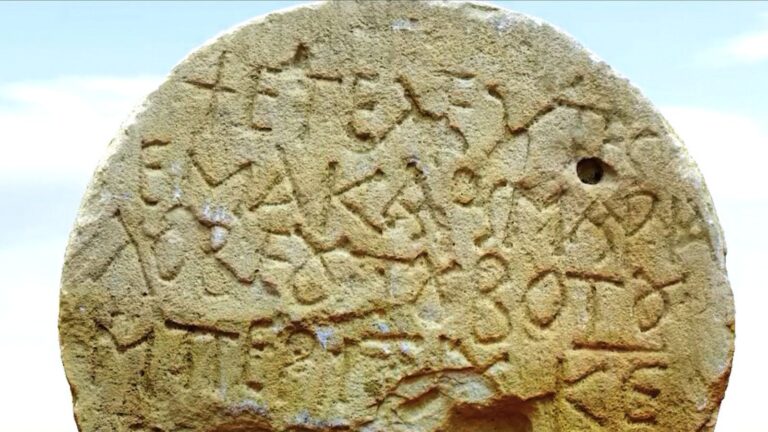As reported by Naama Barak of Israel 21C, January 11, 2021 (link in original):
A lady called Maria who lived some 1,400 years ago apparently led such an immaculate life that her loved ones thought it worth mentioning on her tombstone, which was recently discovered at the Nitzana National Park in southern Israel.The ancient tombstone referring to a blessed Maria that was unearthed in Nitzana in southern Israel. Photo by Emil Aladjem/Israel Antiquities Authority
The flat round tombstone, measuring 10 inches in diameter, was unearthed by an Israel Nature and Parks Authority worker while clearing nature paths.
The Greek inscription on the stone, deciphered by Leah Di Segni of the Hebrew University of Jerusalem, refers to a “Blessed Maria, who lived an immaculate life” and who died on February 9 of an unspecified year. The stone itself was dated to the late sixth to early seventh centuries CE.
“Nitzana is renowned as a key site in research into the transition between the Byzantine and the Early Islamic periods,” explains Tali Erickson-Gini of the Israel Antiquities Authority.
“During the fifth and sixth centuries CE, Nitzana acted as a center for the villages and settlements in the vicinity. Among other things, it had a military fortress as well as churches, a monastery and a road station that served Christian pilgrims traveling to Santa Katarina, which believers regarded as the site of Mount Sinai.”
The ancient town of Nitzana was founded as early as the third century BCE as a Nabatean station on a major trade route. It was inhabited intermittently for over 1,000 years until it was abandoned.
This latest archeological find joins numerous others from the area, such as a papyrus archive unearthed in the 1930s and other tombstones commemorating Christians buried in the churches and cemeteries around the town.







































No comments:
Post a Comment